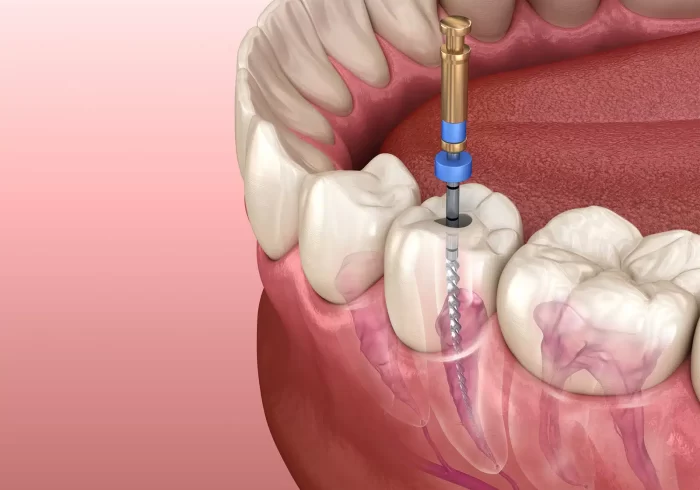What is Peritoneal Mesothelioma?
Peritoneal mesothelioma is a type of cancer that develops in the peritoneum, the membrane that lines the abdomen and its organs. This rare disease is primarily caused by exposure to asbestos. When asbestos fibers are ingested or inhaled, they can travel to the abdomen and become lodged in the peritoneum, leading to the development of cancerous cells over time.
Symptoms and Diagnosis
The symptoms of peritoneal mesothelioma can be vague and often resemble those of other, less severe conditions. Common symptoms include:
- Abdominal pain or swelling
- Nausea or vomiting
- Unexplained weight loss
- Loss of appetite
- Fatigue
Diagnosing peritoneal mesothelioma typically involves a combination of imaging tests, such as CT scans or MRIs, and biopsies to confirm the presence of cancerous cells. Early diagnosis is crucial for better treatment outcomes.
Current Standard Treatments
The current standard treatments for peritoneal mesothelioma include surgery, chemotherapy, and radiation therapy. One routine approach involves administering chemotherapy after mesothelioma surgery. By combining treatments, doctors may be able to remove more mesothelioma cells. This may help prevent recurrence. In some cases, a combination of these treatments, known as multimodal therapy, is used to improve patient outcomes. Each treatment plan is tailored to the individual patient’s condition and overall health.
The Role of Immunotherapy in Treating Peritoneal Mesothelioma
How Immunotherapy Works
Immunotherapy uses the body’s own immune system to fight cancer. It helps the immune system recognize and attack cancer cells. This approach is being explored for various cancers, including peritoneal mesothelioma.
Types of Immunotherapy
There are several types of immunotherapy being studied for peritoneal mesothelioma:
- Checkpoint Inhibitors: These drugs block proteins that stop the immune system from attacking cancer cells. One such drug is Keytruda® (pembrolizumab).
- CAR T-Cell Therapy: This involves reprogramming a patient’s T cells to recognize and attack cancer cells. Although still experimental, it has shown promise in early studies.
- Vaccines: These aim to train the immune system to recognize and fight cancer cells. For example, a dendritic cell vaccine has shown encouraging results in clinical trials.
Success Stories and Case Studies
There have been major responses to immunotherapy in some patients with peritoneal mesothelioma. For instance, a study found that patients treated with a combination of CAR T-cell therapy and Keytruda® achieved a median survival of 23.9 months. This instills new hope for those battling this challenging disease.
Innovative Clinical Trials for Peritoneal Mesothelioma
Overview of Clinical Trials
Clinical trials are essential for discovering new treatments for peritoneal mesothelioma. These studies test new types of treatment to see if they are safe and effective. They often provide patients with access to cutting-edge therapies that are not yet widely available.
Eligibility and Enrollment
To join a clinical trial, patients must meet specific criteria. These can include the type and stage of cancer, previous treatments, and overall health. It’s important for patients to discuss the potential benefits and risks with their doctors before enrolling.
Notable Ongoing Trials
Several clinical trials are currently recruiting patients with peritoneal mesothelioma. For example, a study in New York is testing the effectiveness of chemotherapy given after surgery. Another trial in Philadelphia is exploring the safety of a new immunotherapy drug. These trials offer hope for better treatments and improved outcomes for patients.
Emerging Therapies: Beyond Immunotherapy
Cancer Vaccines
Cancer vaccines are a new way to help the body fight cancer. They work like flu vaccines, teaching the immune system to recognize and attack cancer cells. Some vaccines are still in clinical trials, but early results are promising. For example, the WT1 vaccine showed a median overall survival of 21.4 months in one trial.
Photodynamic Therapy
Photodynamic therapy uses special drugs and light to kill cancer cells. The drug is activated by a specific type of light, which helps to stop the cancer from spreading. This treatment has few side effects, making it a good option for patients who want a better quality of life during treatment.
Cryotherapy
Cryotherapy uses freezing temperatures to kill cancer cells. This treatment can shrink tumors and help with symptoms. It targets only the cancerous areas, so it has fewer side effects than other treatments. A recent study showed that cryotherapy helped relieve chest pain in mesothelioma patients for about five weeks.
Multimodal Therapy Approaches
Combining Treatments for Better Outcomes
Multimodal therapy for mesothelioma involves using a combination of treatments, such as surgery, chemotherapy, and radiation therapy. This approach can be more effective than using a single treatment alone. For instance, postsurgical radiation can help eliminate any remaining cancer cells after surgery. However, patients may experience side effects from multiple treatments.
Case Studies of Multimodal Therapy
Several studies have shown that combining treatments can lead to better outcomes. For example, one study found that patients who underwent cytoreductive surgery followed by hyperthermic intraperitoneal chemotherapy (HIPEC) had a 5-year survival rate of 75%. This means that three out of four patients lived for at least five years after treatment.
Future Directions in Multimodal Therapy
Researchers are continually exploring new ways to combine treatments to improve patient outcomes. Emerging therapies, such as tumor-treating fields (TTFields) and new chemotherapy protocols, are being tested in combination with traditional treatments. These innovative approaches aim to make each individual therapy stronger and reduce the chances of tumors becoming resistant to a single therapy.
Patient Perspectives and Survivor Stories
Experiences with Immunotherapy
Many patients have shared their experiences with immunotherapy. For some, it has been a game-changer, offering hope where there was little before. Patients often talk about the initial fear and uncertainty, but also the relief when they start seeing positive results. One patient mentioned, “Immunotherapy gave me a second chance at life.” These stories highlight the importance of staying hopeful and exploring all treatment options.
Life During Clinical Trials
Participating in clinical trials can be a daunting experience. Patients often face a mix of emotions, from hope to anxiety. However, many find that being part of a trial gives them a sense of purpose. They feel they are contributing to something bigger than themselves. One patient said, “Being in a clinical trial made me feel like I was helping to find a cure for future generations.” This sense of contribution can be incredibly empowering.
Advice for New Patients
For those newly diagnosed, the journey ahead can seem overwhelming. Here are some tips from survivors:
- Stay Informed: Knowledge is power. Learn as much as you can about your condition and treatment options.
- Seek Support: Don’t go through this alone. Join support groups and talk to others who understand what you’re going through.
- Stay Positive: A positive mindset can make a big difference. Focus on the things you can control and take it one day at a time.
These pieces of advice can help new patients navigate their journey with more confidence and hope.








